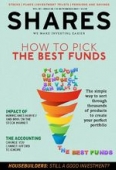Archived article
Please note that tax, investment, pension and ISA rules can change and the information and any views contained in this article may now be inaccurate.
Could you benefit from pensions child benefit tax planning trick?

While there might be no such thing as a free lunch, by understanding the tax system there are simple ways to boost your wealth.
If you have young children and earn between £50,000 and £60,000, there’s a little known – and perfectly legitimate – bit of tax planning you can use to save hundreds of pounds a year.
Child benefit is paid at £20.70 per week for the first child and £13.70 per child thereafter – so two parents with two kids could be eligible for £1,788.80 a year.
However, since 2013 working families where one parent earns more than £50,000 a year have been levied with a ‘High Income Child Benefit Charge’.
This tax operates on a sliding scale so that for every £100 earned above the £50,000 threshold a 1% charge is levied on any child benefits. Where someone in the family is earning over £60,000 the charge wipes out the entire child benefit entitlement.
How to beat the system
Those are the basics, now here’s the trick. When the HMRC, aka the Government tax office, measures earnings for the purposes of the child benefit tax charge, it looks at income net of (or excluding) pension contributions.
That means if you are earning between £50,000 and £60,000 it could make sense to increase the amount you pay into your pension in order to decrease the tax charge levied on your child benefit payments.
How it works in practice
Let’s say a family of four has two children eligible for child benefit, but one of the parents earns £55,000. They are hit with a tax charge of £894.40 which is half the value of the child benefit they received.
However, if the parent earning £55,000 instead paid £5,000 into their pension, they wouldn’t have to pay the child benefit tax charge because their net income would fall to £50,000.
Furthermore, as a higher rate taxpayer they’d be able to claim pension tax relief at the 40% rate, worth a tidy £2,500 on the £5,000 contribution.
It’s worth remembering that if you’re over 55 and have already accessed your pension flexibly, your annual allowance – the amount you can save in a pension each year tax-free – drops from £40,000 to £4,000.
When you combine that extra tax relief boost with child benefit charge saving, flipping the £5,000 of income into pension has added £3,394.40 to the family’s overall wealth.
Royal London, the insurer, reckons 320,000 families could benefit by paying salary into a pension to reduce their child benefit tax bill, potentially saving a combined £171m.
Tom Selby,
Senior analyst, AJ Bell
Important information:
These articles are provided by Shares magazine which is published by AJ Bell Media, a part of AJ Bell. Shares is not written by AJ Bell.
Shares is provided for your general information and use and is not a personal recommendation to invest. It is not intended to be relied upon by you in making or not making any investment decisions. The investments referred to in these articles will not be suitable for all investors. If in doubt please seek appropriate independent financial advice.
Investors acting on the information in these articles do so at their own risk and AJ Bell Media and its staff do not accept liability for losses suffered by investors as a result of their investment decisions.

 magazine
magazine









